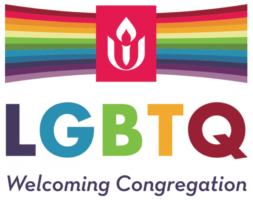Details of the ongoing tragedy in Israel and the Gaza strip have dominated newscasts and newspaper headlines in the 25 days since the surprise attack on southern Israel by Hamas on October 7 killed 1,400 Israelis and injured hundreds of others. Israeli military forces responded with retaliatory strikes that killed more than 8,000 Palestinians in the Gaza strip, including 3,000 children, numbers almost impossible to comprehend. I confess I have not followed the progress of the conflict closely. News coverage has often focused on the carnage and destruction with graphic images prevailing. It’s very disturbing to see images of the victims and the wailing mourning of the survivors. And such images do little to illuminate the history, culture, and ideology behind the attacks and counterattacks.
As many of you know, I spent five months in Israel in 1981. It’s where I met my second wife, and it holds many, many memories for me, most of which warm my heart. My time there allowed for much travel, so I got to make trips to Jerusalem, Nazareth, Bethlehem, Capernaum, Tel Aviv, Haifa, Mount Carmel, Safed, Caesarea, the Sea of Galilee, the Dead Sea, the Qumran caves, Masada, Eilat, the Negev, Sharm el Sheikh, the Red Sea– many places. So, Israel is lodged warmly in my heart.
Not all memories are fond memories, though. In early to late-June, the state of Israel entered a state of emergency. A conflict had erupted between Israel and the country of Iraq. All I remember hearing was that a flight of five Iraqi airplanes had flown over the airspace of Israel causing the whole country to be on a war footing. Everyone who was eligible to serve in the military– and in Israel that was every able-bodied individual, male or female, between the ages of 18 and 40– was placed on active duty. Things changed quickly at the kibbutz. Men and women we had been used to seeing moving at the leisurely pace of everyday life now walked purposefully and often hurriedly. Instead of their usual work clothes, soldiers now, they wore military camouflage uniforms. No one informed the volunteers officially, but we were told by some of the kibbutzniks that we had to prepare for a possible attack. For three days, we waited nervously for developments before the state of tension abated. Only much later did I learn that the flight of Iraqi warplanes was in response to “Operation Opera,” an Israeli military surprise air strike on an Iraqi nuclear reactor southeast of Baghdad. There was sharp international criticism of the attack, including by the United States. Media response was also negative, including the LA Times’ characterization of the attack as “state-sponsored terrorism.”
The conflict in the Middle East has been centuries in the making, and there is no simple way to declare good guys vs. bad guys, aggressors vs. victims. As in all situations which require calm and reasoned analysis, we get instead, a reversion to tribalism: my side vs. your side. Both Israelis and Palestinians have been victimized over the years. The solution, if there is one, is certainly not heightened aggression and a determination to wipe out the enemy.
I don’t know what we as Americans living so far from the battlefield can do to affect change, but I do know that threats of escalation by Mideast rivals may well result in more direct involvement of other powers and superpowers, including the United States. An article in the Nov. 1 edition of The Guardian provides a good analysis of the tribalism that we are in danger of falling into. The Middleboro Library is offering a presentation focusing on history and analysis on November 8 at 6:30 p.m. We owe it to ourselves to be as informed as we can be so that we can, at least, engage in civil and well-informed dialogue with each other and others in our circles.
I am holding all of you and all those affected by the violence, in my heart.
Rev. Peter

